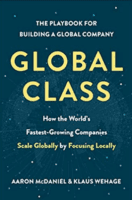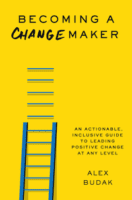Three new books written by Haas professional faculty members share one thing in common: deep learning from the successes of people making innovative change in business today. Here’s more on each new book:
Clusters of Innovation in the Age of Disruption
Edward Elgar Publishing, published August 2022
By Jerome Engel, founding executive director emeritus of the Lester Center for Entrepreneurship (now the Berkeley Haas Entrepreneurship Program)
 Much has changed since Engel’s 2014 publication of Global Clusters of Innovation: Entrepreneurial Engines of Economic Growth around the World, a book that explored the explosion of entrepreneurship and innovation ecosystems globally, a movement that spread Silicon Valley business practices around the world. By 2022, economic disruption from the COVID-19 pandemic, global warming, and environmental degradation led Engel to ask how innovation ecosystems can support the evolution of more robust, agile, and sustainable societies. Those questions led to this book about innovation ecosystems, clusters of innovation, and the global networks of clusters of innovation that naturally form. He argues that entrepreneurs, collaborating with venture investors and major corporations, can create clusters of innovation that help build the resiliency required to quickly adapt and rebound from economic shocks. The process is helped along by supportive government, universities, and other elements of the ecosystem.
Much has changed since Engel’s 2014 publication of Global Clusters of Innovation: Entrepreneurial Engines of Economic Growth around the World, a book that explored the explosion of entrepreneurship and innovation ecosystems globally, a movement that spread Silicon Valley business practices around the world. By 2022, economic disruption from the COVID-19 pandemic, global warming, and environmental degradation led Engel to ask how innovation ecosystems can support the evolution of more robust, agile, and sustainable societies. Those questions led to this book about innovation ecosystems, clusters of innovation, and the global networks of clusters of innovation that naturally form. He argues that entrepreneurs, collaborating with venture investors and major corporations, can create clusters of innovation that help build the resiliency required to quickly adapt and rebound from economic shocks. The process is helped along by supportive government, universities, and other elements of the ecosystem.
Global Class: How the world’s fastest-growing companies scale globally by focusing locally
Matt Holt (BenBella Books), published August 2022
By Aaron McDaniel, BS 04, lecturer with the Berkeley Haas professional faculty, and Klaus Wehage

Aaron McDaniel, who teaches entrepreneurship to undergraduates at Berkeley Haas, and Klaus Wehage are co-founders of 10X Innovation Lab, which helps build innovation ecosystems worldwide. During the pandemic, the authors said they realized there was no book published on innovation in international business expansion that matched the success of Eric Ries’ The Lean Startup. So over 1 1/2 years, they interviewed more than 300 executives from the world’s fastest-growing companies across 50 countries to understand what made them successful in reaching global scale. The list included CEOs and founders of Apple, Zoom, Slack, and Airbnb. The authors suggest that applying agile principles will enables global-class companies to more easily pivot their business and successfully localize in overseas markets with different cultural contexts. McDaniel said he hopes that Global Class will provide a tool kit and framework for companies of all sizes and stages to help build global, distributed teams; manage a diverse footprint; and balance cultural differences.
Becoming a Changemaker: An actionable, inclusive guide to leading positive change at any level
Balance (Grand Central Publishing), published September 2022
By Alex Budak, Haas lecturer and creator of the Changemaker course

Stepping into a leadership role doesn’t require people to be at the top of a group or organization. Anyone—regardless of title, personality, race, gender, age, or class—can be a changemaker and effect powerful, positive change from where they sit in a workplace or community, Haas Lecturer Alex Budak argues in his new book. Based on Budak’s popular Berkeley Haas course of the same name, the book is anchored by the Berkeley Haas Defining Leadership Principles Question the Status Quo, Confidence Without Attitude, Students Always, and Beyond Yourself. Budak introduces concepts and tools aimed at helping readers develop the confidence, courage, and commitment to lead change from wherever they are—and includes examples across industries, age levels, and abilities. The book includes a longitudinal study of how people develop key changemaker skills over time and provides access to some of the same exercises he uses in his class.